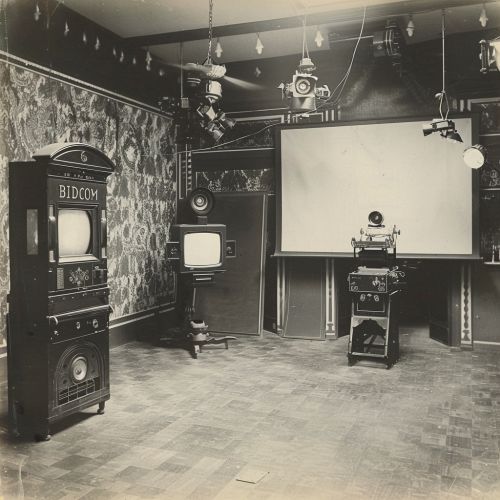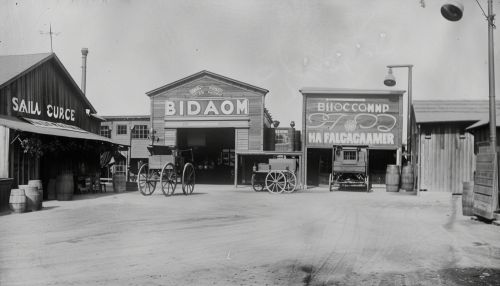D. W. Griffith
Early Life
David Wark Griffith was born on January 22, 1875, in Crestwood, Kentucky, to Jacob "Roaring Jake" Griffith, a Confederate Army colonel in the American Civil War, and Mary Perkins (née Oglesby). Despite his father's military service, the family was not wealthy and struggled financially after the war. Griffith was educated in a one-room schoolhouse, where he developed a love for literature and the theatre. His father died when he was ten, and his mother struggled to maintain the family on her own.
Career
Griffith began his career as a hopeful playwright but met with little success. He found work as an extra in Edwin S. Porter's production company, and by 1908, he was acting in films for the Biograph Company. Here, he made over 400 films, most of which were short, one-reel films. His early works were influenced by the melodramas popular in the late 19th and early 20th centuries.


In 1915, Griffith directed and produced his first feature film, The Birth of a Nation. The film was a commercial success but was controversial for its depiction of African Americans and its glorification of the Ku Klux Klan. Despite the controversy, the film is recognized for its innovative techniques, such as cross-cutting and the use of close-ups.
Griffith's next major film, Intolerance (1916), was an ambitious response to his critics. The film interweaves four parallel storylines from different historical periods, each demonstrating the destructive effects of intolerance. Despite its innovative structure and the scale of its production, Intolerance was not a commercial success.
In 1919, Griffith co-founded United Artists with Charlie Chaplin, Mary Pickford, and Douglas Fairbanks. The company was created to give the artists control over their own work, including the profits. Griffith made several films for United Artists, including Broken Blossoms (1919), Way Down East (1920), and Orphans of the Storm (1921).
Later Life and Death
Griffith's later films did not achieve the same success as his earlier works, and he struggled with financial difficulties. He made his last film, The Struggle, in 1931. Afterward, he spent most of his time in hotels in Los Angeles and New York, living on a small pension provided by the Directors Guild of America.
Griffith died of a cerebral hemorrhage on July 23, 1948, in Los Angeles. He was buried in Mount Tabor Methodist Church Graveyard in Crestwood, Kentucky.
Legacy
Despite the controversy surrounding some of his films, Griffith's impact on cinema is undeniable. He is credited with developing many of the techniques that are now standard in filmmaking, including the use of close-ups, cross-cutting, and flashbacks. His films, particularly The Birth of a Nation and Intolerance, are often studied in film courses for their innovative techniques.
However, Griffith's legacy is also marked by the controversy surrounding his depiction of race in his films. The Birth of a Nation has been criticized for its racist depictions of African Americans and its positive portrayal of the Ku Klux Klan. These controversies have led to debates about how to reconcile Griffith's contributions to cinema with the harmful stereotypes he perpetuated.
